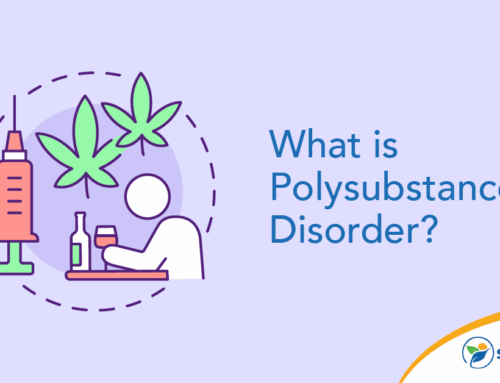In recent years, the United States has seen a rise in the decriminalization and legalization of both recreational and medicinal marijuana. This cultural shift has led many to believe there aren’t any harmful risks associated with weed and that it’s not really an addictive substance. However, many people do struggle with quitting marijuana and they often face stigma stemming from the myth that weed isn’t addictive. So, do people go to rehab for weed?
There are many facilities out there that can help you overcome a weed dependence and develop coping skills for a successful recovery. Keep reading to learn about the risks associated with marijuana use and why some people might choose to go to rehab for weed.
Risks of Using Weed
Marijuana is the most commonly used illicit substance in the United States. The drug is derived from dried leaves, flowers, stems or seeds from the cannabis indica and cannabis sativa plants. As a psychoactive drug, it contains close to 500 chemicals including THC, a mind-altering compound that can negatively impact your health.
While marijuana use is steadily growing among American adults, the perception of how harmful weed can be is declining. Many people, especially those of younger generations, don’t consider marijuana use risky. According to the Substance Abuse and Mental Health Services Administration, about 1 in 10 people who use weed will become addicted. This number increases to 1 in 6 for those under 18.
If you frequently use weed, you may be wondering: what is marijuana addiction in rehab? There are many risks associated with marijuana use that can be addressed during rehab, including:
- Mental health: Weed use has been linked to anxiety, depression, suicide planning and psychotic episodes.
- Daily life: People who use marijuana are more likely to have lower career achievement, worse educational outcomes, relationship problems and reduced overall life satisfaction.
- Athletic performance: Marijuana affects movement and coordination, which can make it harder to engage in exercise or physical activities.
- Pregnancy issues: If you or your partner is expecting or planning on getting pregnant, marijuana may cause premature birth, problems with brain development, fetal growth restrictions or stillbirth. Chemicals from weed can also be passed to the baby through breast milk, causing further developmental issues.
Do people go to rehab for marijuana to address these issues? It depends on the person and the severity of their substance use, but it is indeed possible to find a treatment center that specializes in treating marijuana use disorder.
Do People Go to Rehab for Weed?
Marijuana use can have both short- and long-term affects, such as memory loss and paranoia. It can also become disruptive to an individual’s life and relationships if the addiction becomes severe. Is there rehab for weed to treat these issues? Rehab can help those who’ve developed a marijuana use disorder cut back on their consumption and seek healthier ways to process negative emotions or other life stressors.
A marijuana use disorder occurs when someone excessively uses weed despite the negative impact it has on their life and health. Over time, the brain adapts to large amounts of the drug by reducing production of neurotransmitters and hormones. After using weed excessively for a long time, your brain cuts down on production of endocannabinoid neurotransmitters, becoming less sensitive to hormones it doesn’t produce. This is your brain becoming so accustomed to the presence of weed that it doesn’t know how to function properly without it. As of 2020, about 5.1% or 14.2 million people aged 12 or older had a marijuana use disorder.
Signs of a marijuana use disorder can include:
- Using more weed than intended
- Craving weed
- Spending a lot of time using weed
- Trying and failing to quit
- Giving up important commitments to use weed
- Using weed in high-risk situations, such as driving a vehicle
- Needing to increase your dosage to get the same high
- Continuing to use weed despite psychological or physical issues
- Experiencing withdrawal symptoms when you stop using weed
If you’re struggling with marijuana use, you may have noticed how difficult quitting can be. Many people who try to stop experience unpleasant withdrawal symptoms, including irritability, anxiety, depression and flu-like symptoms. Do people go to rehab for weed withdrawal symptoms? Some people do. Others may attend rehab because they find themselves using marijuana to self-medicate physical or mental health conditions.
For example, weed has become a popular alternative to traditional medications for relieving pain or inflammation. People may use marijuana to treat chronic pain and conditions such as depression, anxiety or post-traumatic stress disorder.
How to Get Treatment for Weed Dependence
Treatment centers aren’t exclusive to people recovering from addictions to heavy substances, such as alcohol or heroin. Many seek rehab for behavioral addictions like eating disorders or gambling. Mental health specialists teach clients how to develop coping mechanisms and identify triggers to avoid future relapses. Can you go to rehab for weed? If you’ve been struggling with marijuana use, rehab can help you effectively overcome your addiction and address any underlying mental health conditions.
According to the National Institute on Drug Abuse, it’s common for people with marijuana use disorders to suffer from other psychiatric disorders or be addicted to other substances, such as alcohol or cocaine. Treating co-occurring mental health disorders can be effective in also treating a weed addiction. Behavioral therapies, such as cognitive behavioral therapy, contingency management or motivational enhancement therapy have proven to be effective treatments.
However, there are currently no FDA-approved medications to treat marijuana use disorder. Because the withdrawal period of quitting marijuana doesn’t typically cause medical complications, insurance companies may not provide the same coverage as they would for alcohol or opioid detox.
Many rehab facilities specializing in treating marijuana dependence offer self-pay options with affordable payment plans, so you can still receive the proper treatment you need. In some cases, if a mental health condition like depression is determined to be the reason you need rehab, your insurance may step in to help cover the costs.
Seek Mental Health or Addiction Treatment
If you or a loved one is struggling with marijuana use or mental health issues, the experts at Sunlight Recovery are here to help. We can help you identify the underlying reasons why you may turn to weed to cope with stressful or unpleasant situations. Contact us today to speak with a specialist and start your journey to recovery.







